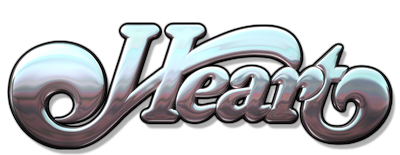Track List
01) Heartless
02) Devil Delight
03) Just the Wine
04) Without You
05) Magazine
06) Here Song
07) Mother Earth Blues
08) I've Got the Music in Me
01) Heartless
02) Devil Delight
03) Just the Wine
04) Without You
05) Magazine
06) Here Song
07) Mother Earth Blues
08) I've Got the Music in Me
5:01
5:00
4:16
4:43
6:22
1:34
5:59
6:17
Data Complete 80%
Total Rating
Total Rating
Back Cover![]()
CD Art
3D Case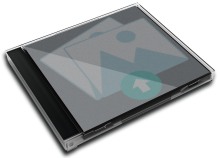
3D Thumb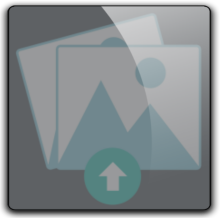
3D Flat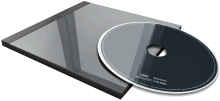
3D Face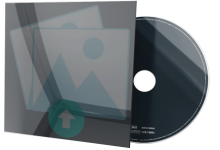
3D Spine
First Released
![]() 1978
1978
![]() Classic Rock
Classic Rock
![]() Good Natured
Good Natured
![]() Rock/Pop
Rock/Pop
![]() ---
---
![]() ---
---
![]() Album
Album
![]() 0 copies
0 copies
Album Description
Available in:
Magazine is a studio album by the hard rock band Heart. The album was certified platinum. It has an unusual history in that the first release in 1977 was an unfinished version not authorized by the group. A second authorized version of the album was re-released in 1978.
After the debut album Heart began recording new songs in Vancouver that were intended as their next studio album for Mushroom Records. However, the group had a falling out with Mushroom over an advertisement celebrating the sales of Dreamboat Annie. The advertisement, which ran as a full-page in Rolling Stone showed the sisters bare-shouldered (as on the "Dreamboat Annie" album cover) with the suggestive caption "It was only our first time."
Recording sessions for the new album stopped after the band and their label were unsuccessful in re-negotiating their contract. Only five incomplete recordings were made during these 1976 sessions. As the group had now proven themselves to be hit-makers, they expected Mushroom to raise their royalty rate. But to the surprise of the group and their producer Mike Flicker the label refused to pay more.
While keeping the group under contract Mushroom claimed it was not interested in releasing a second Heart album. Flicker ended his relationship with the label and the group followed, as they believed they had no obligation to stay without their producer. The CBS Records (now Sony BMG) subsidiary, Portrait Records, had offered Flicker and the group a more lucrative contract. The group broke the two-album contract with Mushroom and moved on to record for Portrait by early 1977.
1977 release
The change in labels resulted in a prolonged legal battle with Mushroom's creative director Shelly Siegel. Mushroom, still having a 2-album contract, claimed they had the legal right to release a second Heart album after all. Still in possession of the five unfinished studio recordings as well as a handful of unreleased live tracks recorded in 1975, Mushroom had them remixed by the band's recording engineer, but without the presence or input of any member of the group.
The label added another studio track, Here Song (the rare 1975 b-side of Heart's first Canadian single.) The rest of the album was filled by two live songs recorded in 1975 at "The Aquarius Tavern", a Seattle area rock club where the group had played regularly. Mushroom released the collection as Magazine in the spring of 1977, at the same time that the group was preparing their next album for Portrait titled Little Queen.
According to Flicker, about 50,000 copies of the original Magazine album were pressed. Some of these copies were sold in stores, mostly in Los Angeles and Hollywood, Florida where the records were manufactured. Unsold copies were quickly recalled and later destroyed when Heart took Mushroom to court to stop distribution of the album. The 1977 version was also briefly released in Europe through Arista Records.
Though the album was not officially released to radio stations in 1977, some stations such as KISW, a leading rock station in Seattle, played songs from the unauthorized version, against the wishes of the group. The 1977 release album cover carried a disclaimer on the back cover which read:
"Mushroom Records regrets that a contractual dispute has made it necessary to complete this record without the cooperation or endorsement of the group Heart, who have expressly disclaimed artistic involvement in completing this record. We did not feel that a contractual dispute should prevent the public from hearing and enjoying these incredible tunes and recordings."
Injunction, re-recording and remixing
Unhappy with the somewhat unpolished studio performances and the inclusion of the live recordings, the group took Mushroom to court with the aim of having the 1977 release of Magazine taken off the market. The Seattle court ruled that Mushroom had to recall the album, but the terms of the settlement required that Heart provide a second album for Mushroom. Heart chose to fulfill this obligation by finishing the previously released songs to a quality of their satisfaction.
For the 1978 version Heart chose to re-record, remix, edit, and re-sequence the recordings. This work was done March 6-9, 1978 at Sea-West Studios in Seattle. A security guard stood by in the studio to make sure that the group did not try to erase the multitrack master tapes. They added new lead vocals to most of the existing studio tracks.
One of the most obvious differences is that on the original recording of "Heartless" Ann Wilson sings "The doc said come back again next week..." On the re-recorded version she sings "doctor" instead. The new lead vocal on "Heartless" is less controlled than the original. The synthesizer solo on "Just the Wine" was replaced by a flute solo and the song is slightly edited. The ending of "Magazine" fades about 30 seconds earlier. The live "Blues Medley" was edited to remove some of Roger Fisher's guitar solo sections and Ann Wilson's solo vocal parts. There are also many other subtle differences. The revised version of the album was released with no disclaimer by Mushroom Records in April 1978.
Epilogue
In the early 1980s Mushroom Records went out of business. Ownership rights to Heart's two albums for Mushroom were purchased by Capitol Records who re-issued the recordings. The 1978 release was also pressed as a picture disc of the album cover. The back cover indicates that it is a special limited edition of 100,000 copies. The original cover had a circle cut out of it. This circle was sent to record stores to be hung in the store for promotion of the album.

User Album Review
None...
External Album Reviews
None...
User Comments


Available in:
Magazine is a studio album by the hard rock band Heart. The album was certified platinum. It has an unusual history in that the first release in 1977 was an unfinished version not authorized by the group. A second authorized version of the album was re-released in 1978.
After the debut album Heart began recording new songs in Vancouver that were intended as their next studio album for Mushroom Records. However, the group had a falling out with Mushroom over an advertisement celebrating the sales of Dreamboat Annie. The advertisement, which ran as a full-page in Rolling Stone showed the sisters bare-shouldered (as on the "Dreamboat Annie" album cover) with the suggestive caption "It was only our first time."
Recording sessions for the new album stopped after the band and their label were unsuccessful in re-negotiating their contract. Only five incomplete recordings were made during these 1976 sessions. As the group had now proven themselves to be hit-makers, they expected Mushroom to raise their royalty rate. But to the surprise of the group and their producer Mike Flicker the label refused to pay more.
While keeping the group under contract Mushroom claimed it was not interested in releasing a second Heart album. Flicker ended his relationship with the label and the group followed, as they believed they had no obligation to stay without their producer. The CBS Records (now Sony BMG) subsidiary, Portrait Records, had offered Flicker and the group a more lucrative contract. The group broke the two-album contract with Mushroom and moved on to record for Portrait by early 1977.
1977 release
The change in labels resulted in a prolonged legal battle with Mushroom's creative director Shelly Siegel. Mushroom, still having a 2-album contract, claimed they had the legal right to release a second Heart album after all. Still in possession of the five unfinished studio recordings as well as a handful of unreleased live tracks recorded in 1975, Mushroom had them remixed by the band's recording engineer, but without the presence or input of any member of the group.
The label added another studio track, Here Song (the rare 1975 b-side of Heart's first Canadian single.) The rest of the album was filled by two live songs recorded in 1975 at "The Aquarius Tavern", a Seattle area rock club where the group had played regularly. Mushroom released the collection as Magazine in the spring of 1977, at the same time that the group was preparing their next album for Portrait titled Little Queen.
According to Flicker, about 50,000 copies of the original Magazine album were pressed. Some of these copies were sold in stores, mostly in Los Angeles and Hollywood, Florida where the records were manufactured. Unsold copies were quickly recalled and later destroyed when Heart took Mushroom to court to stop distribution of the album. The 1977 version was also briefly released in Europe through Arista Records.
Though the album was not officially released to radio stations in 1977, some stations such as KISW, a leading rock station in Seattle, played songs from the unauthorized version, against the wishes of the group. The 1977 release album cover carried a disclaimer on the back cover which read:
"Mushroom Records regrets that a contractual dispute has made it necessary to complete this record without the cooperation or endorsement of the group Heart, who have expressly disclaimed artistic involvement in completing this record. We did not feel that a contractual dispute should prevent the public from hearing and enjoying these incredible tunes and recordings."
Injunction, re-recording and remixing
Unhappy with the somewhat unpolished studio performances and the inclusion of the live recordings, the group took Mushroom to court with the aim of having the 1977 release of Magazine taken off the market. The Seattle court ruled that Mushroom had to recall the album, but the terms of the settlement required that Heart provide a second album for Mushroom. Heart chose to fulfill this obligation by finishing the previously released songs to a quality of their satisfaction.
For the 1978 version Heart chose to re-record, remix, edit, and re-sequence the recordings. This work was done March 6-9, 1978 at Sea-West Studios in Seattle. A security guard stood by in the studio to make sure that the group did not try to erase the multitrack master tapes. They added new lead vocals to most of the existing studio tracks.
One of the most obvious differences is that on the original recording of "Heartless" Ann Wilson sings "The doc said come back again next week..." On the re-recorded version she sings "doctor" instead. The new lead vocal on "Heartless" is less controlled than the original. The synthesizer solo on "Just the Wine" was replaced by a flute solo and the song is slightly edited. The ending of "Magazine" fades about 30 seconds earlier. The live "Blues Medley" was edited to remove some of Roger Fisher's guitar solo sections and Ann Wilson's solo vocal parts. There are also many other subtle differences. The revised version of the album was released with no disclaimer by Mushroom Records in April 1978.
Epilogue
In the early 1980s Mushroom Records went out of business. Ownership rights to Heart's two albums for Mushroom were purchased by Capitol Records who re-issued the recordings. The 1978 release was also pressed as a picture disc of the album cover. The back cover indicates that it is a special limited edition of 100,000 copies. The original cover had a circle cut out of it. This circle was sent to record stores to be hung in the store for promotion of the album.
User Album Review
None...
External Album Reviews
None...
User Comments

No comments yet...

